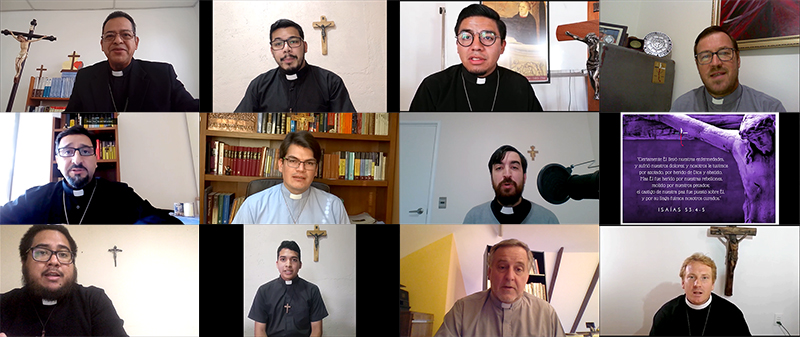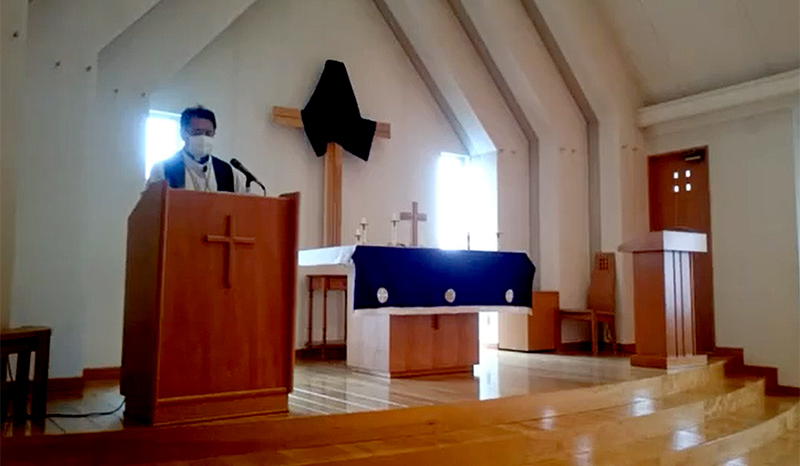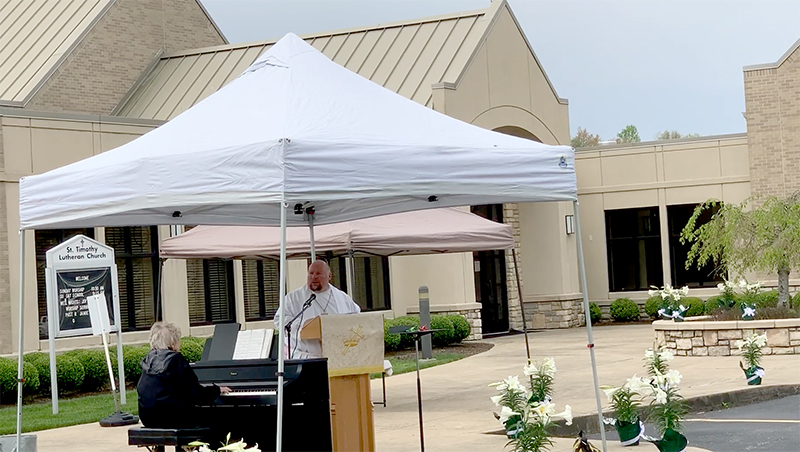
USA – The Lutheran Church—Missouri Synod (LCMS) held its 68th Synodical Convention from July 28-August 3 in Milwaukee, Wisconsin, during which time the church newly recognized fellowship with two church bodies in Uganda and Ukraine, affirmed fellowship with two others in South Sudan/Sudan and Finland, and recognized a fifth in Sri Lanka as a self-governing partner church. The decisions came during the afternoon session of July 30.
The LCMS’ new partners include the Evangelical Lutheran Church of South Sudan/Sudan (ELCSS/S); the Evangelical Lutheran Mission Diocese of Finland (ELMDF); the Lutheran Church of Uganda (LCU); the Evangelical Lutheran Church of Ukraine (ELCU); and the Ceylon Evangelical Lutheran Church (CELC). All were received unanimously.
South Sudan/Sudan and Finland
The first two votes saw the endorsement of previous declarations of fellowship made by the LCMS president during the past triennium. Under LCMS bylaws, the president of synod can declare fellowship between the LCMS and emerging confessional Lutheran church bodies on the recommendation of the Commission of Theology and Church Relations (CTCR), with the decisions to then be ratified during the next synodical convention.
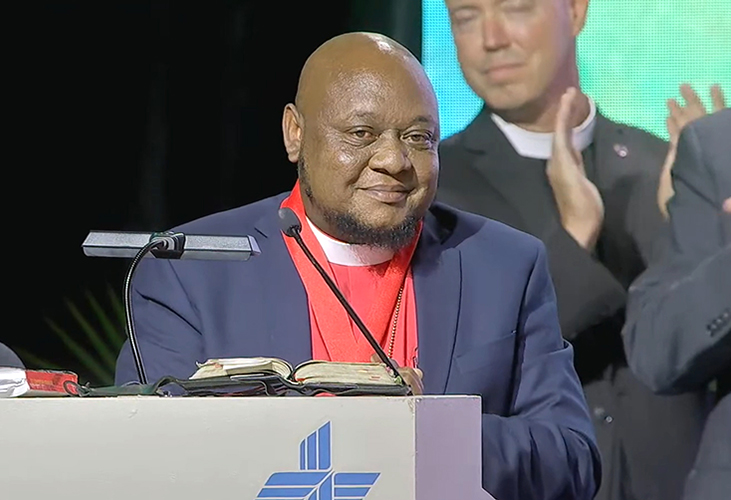
President Matthew Harrison—who was reelected in advance of the convention—initially declared fellowship with the Evangelical Lutheran Church of South Sudan/Sudan in 2022. The LCMS and the Lutheran Heritage Foundation have enjoyed a cooperative relationship with the ELCSS/S going back to the 1990s.
“I give thanks to God Almighty and to all of you, the delegates, for endorsing the declaration of altar and pulpit fellowship between our two churches,” said ELCSS/S Bishop Peter Anibati Abia following the vote. “I invite you to join hands with us so that we together can bring the joy of the Gospel to many who are lost.”
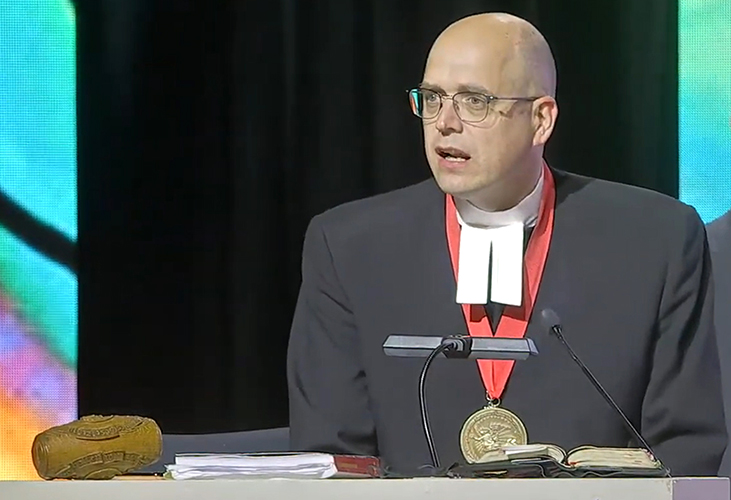
LCMS President Matthew Harrison also declared fellowship with the Evangelical Lutheran Mission Diocese in 2020, and the convention vote endorses that decision. The ELMDF and the LCMS began fellowship talks in 2017.
ELMDF Bishop Pohjola greeted the affirmation with joy. “What a gift to confess together Christ crucified!” he said. “What a gift to receive together the gifts of the cross: forgiveness of sins, life, and salvation. What a gift to drink from the same chalice in unity of faith. What a gift to share the Gospel of salvation in the same mission work to the world. And what a gift to pray and support each other in the midst of trials and hostility.”
Uganda and Ukraine
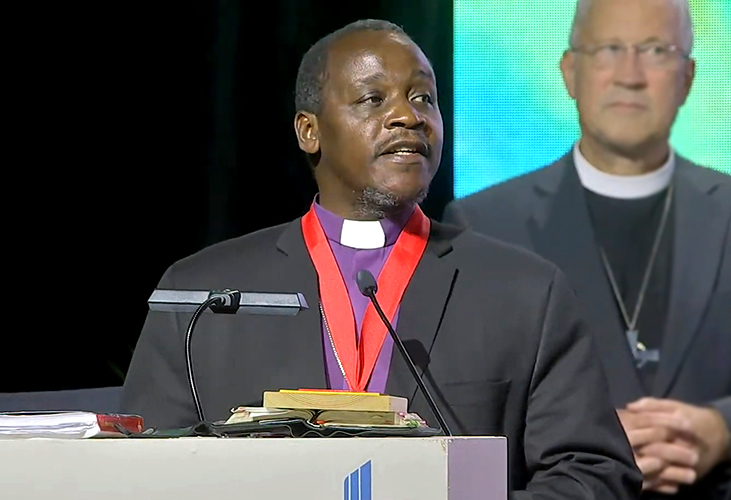
The convention then turned to new declarations of fellowship. The first of these was with the Lutheran Church of Uganda. The LCMS previously participated in mission work in Uganda alongside the Evangelical Lutheran Church of Ghana, which began work in the country in 1993. The LCU became self-governing in 2015.
“It is the hope of the Lutheran Church of Uganda that in this fellowship The Lutheran Church—Missouri Synod will continue to walk with us,” said LCU Bishop Charles Bameka, noting the new fellowship declaration was the culmination of a process that first began in 2016. “May God the Father, Son, and Holy Spirit lead and guide us as we together preach Christ crucified. Amen.”
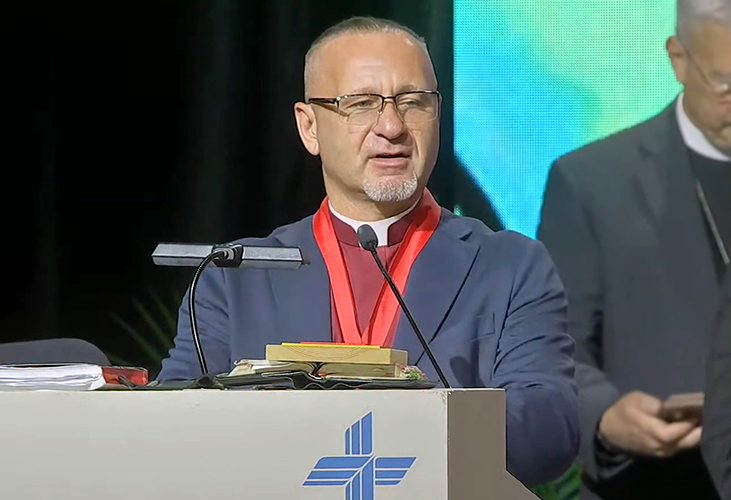
Then came a vote to recognize fellowship with the Evangelical Lutheran Church of Ukraine. The church body emerged out of a 2015 split in the German Evangelical Lutheran Church of Ukraine, with confessional Lutherans coalescing around the emerging ELCU. LCMS ties to members in the ELCU go back to the 1990s.
“Today the Lord united us, and we today follow His words: ‘May they all be one as You, Father, are in Me and I in You. May they be one as We are one.’” said ELCU Bishop Serge Maschewski. “I thank God and you, brothers and sisters—participants of this convention—for this wonderful opportunity.” Bishop Maschewski then presented LCMS President Harrison with a damaged helmet that saved the bishop’s life when, while providing pastoral care in in Ukraine, a convoy of vehicles in which he was traveling was hit by a missile strike. The helmet—which was provided thanks to LCMS support—is a potent symbol of the two churches’ partnership in support of the Gospel amidst the difficulties of this world.
Sri Lanka
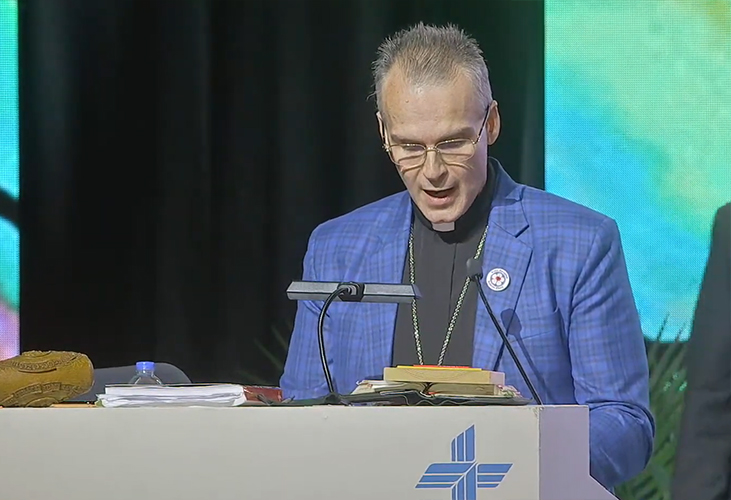
The fifth church with which the convention recognized fellowship was the Ceylon Evangelical Lutheran Church (CELC) in Sri Lanka. The CELC grew out of the mission efforts of The Lutheran Church—Missouri Synod, and is a successor church to a previous LCMS partner: the Lanka Lutheran Church, whose legal status had lapsed. The new vote reestablishes the recognition of fellowship with Sri Lankan Lutherans as a self-governing church body.
CELC Bishop Arumanayagam Arulchelvan was unable to attend the convention in person but sent greetings in a letter which was read to the delegates. The LCMS and the CELC both “remain committed to upholding sound confessional Lutheran theology, fervently sharing the saving Gospel of our Lord Jesus and demonstrating God’s love through acts of mercy to those in need,” he wrote. “I humbly invite you to join hands with us so that together we can bring the joy of the Gospel to the many who are lost. May the name of the Lord be praised now and forevermore.”
Broken Ties
A day later on July 31, the LCMS convention took up the sadder business of recognizing the loss of fellowship with the Japan Lutheran Church (JLC). The move came after growing disagreement between the two church bodies on ordination and other subjects, culminating in the JLC’s 2021 decision to alter its constitution and bylaws to remove the requirement that those ordained to pastoral ministry be male.
The LCMS therefore adopted a resolution recognizing that “the LCMS with deep sorrow and regret declares that it can no longer recognize altar and pulpit fellowship with the JLC,” while at the same time acknowledging the LCMS’ “own shortcomings and failures in not giving adequate attention to these theological concerns.” The resolution ends with a commitment to remain “open and eager to pursuing further doctrinal discussions with the JLC should the JLC at any time be open to such discussions in the hope that by God’s grace our church bodies might once again attain complete agreement in doctrine and practice and once again enjoy the gift of God-given and God-pleasing altar and pulpit fellowship.”
Concurrent with the synodical convention, the LCMS also held an International Church Relations Forum, with more than 40 international representatives present for the event. Participants, some of whom also addressed convention delegates and participated in convention events, enjoyed a schedule of worship, theological presentations, and discussion time.
———————

